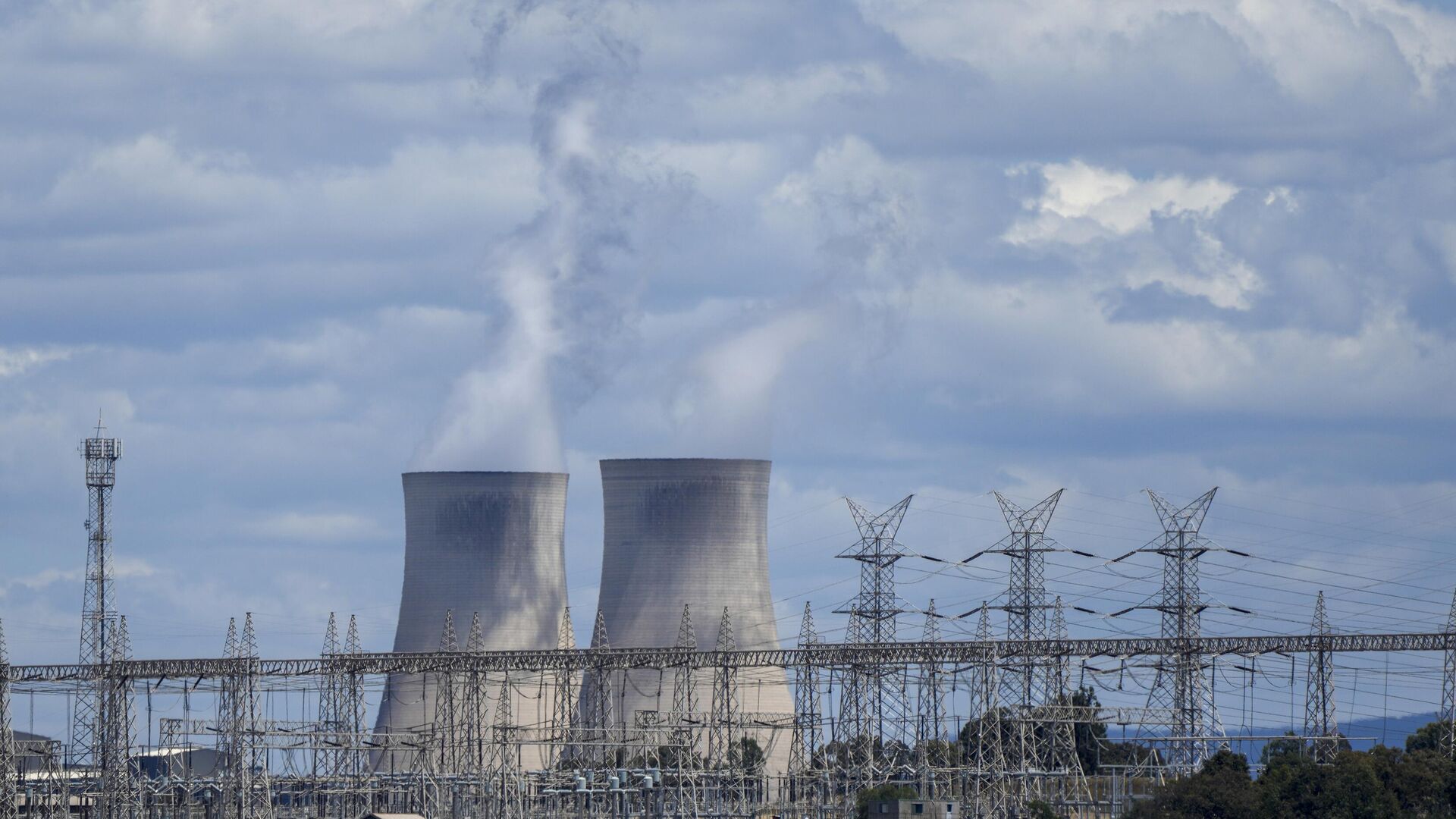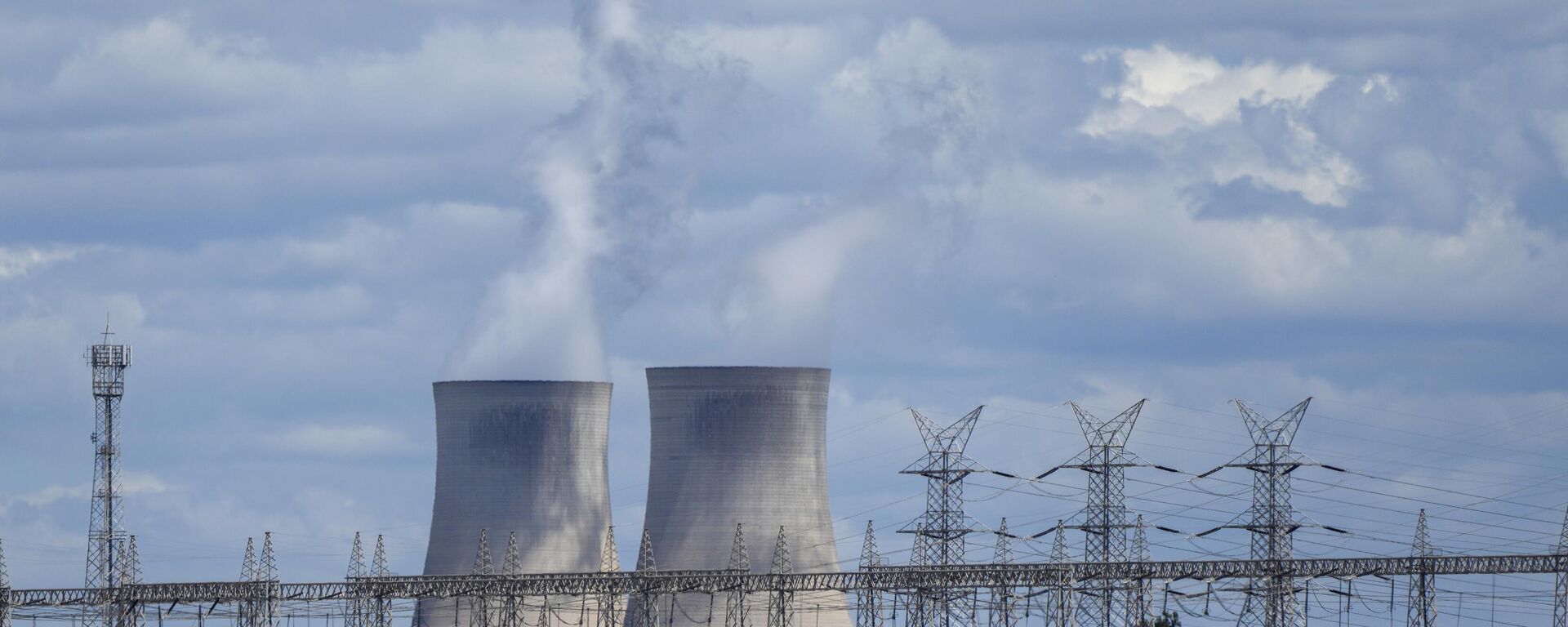https://sputniknews.in/20231102/eus-carbon-tax-exerts-economic-pressure-on-developing-nations-say-experts-5203140.html
EU's Carbon Tax Exerts Economic Pressure on Developing Nations: Experts
EU's Carbon Tax Exerts Economic Pressure on Developing Nations: Experts
Sputnik India
The European Union aims to be climate-neutral by 2050. To achieve this goal, it has introduced the Carbon Border Adjustment Mechanism (CBAM), a tariff on carbon-intensive products imports from non-EU countries.
2023-11-02T22:13+0530
2023-11-02T22:13+0530
2023-11-10T17:57+0530
india
africa
mozambique
european union (eu)
sputnik opinion
climate change
co2 emissions
greenhouse gas (ghg) emissions
europe
colonialism
https://cdn1.img.sputniknews.in/img/07e7/09/05/4057158_0:40:3318:1906_1920x0_80_0_0_9f97e76b73470f2112c749915d1050a6.jpg
In October, Europe entered into a much controversial transitional phase of the Carbon Border Adjustment Mechanism (CBAM), saying that it is putting an equitable price on carbon emitted during the production of items under the EU Emission Trading System (ETS). European nations justified the tax by saying it would allegedly spur greener heavy industry.The developing nations of the world, particularly South East Africa and Africa, are expressing discontent with the tax due to the considerable economic pressure it imposes on them.Why Has Europe Ushered In This Carbon Tax?To ensure that Europe's climate goals achieved, the EU is now trying to implement a tax mechanism to monitor carbon leakage and promote cleaner production in non-EU countries.In the transition phase, which began on 1 October and will run through 2025, the tax applies to six items categorising them as carbon-intensive and at the most significant risk of carbon leakage, which includes cement, iron and steel, aluminium, fertilisers, electricity, and hydrogen.However, tax is being criticised by experts as the data from 1990 to 2015 concluded that poor nations are responsible for only seven percent of emissions, while the developed and wealthiest (10 percent) are responsible for 50% of total carbon emissions.In contrast, the burden of CBAM will be borne by countries including India, Bangladesh, Mozambique, Ghana, Cameroon, Zimbabwe, Zambia and Nigeria."There's a concern that CBAM could be used as a form of protectionism, with developed economies using it to protect their industries from competition, particularly emerging economies. The imposition of CBAM can be seen as contradicting the principles of climate justice and equity," Bhardwaj added.Dr Saon Ray, an economist and visiting professor at the Indian Council for Research on International Economic Relations (ICRIER), also felt that Europeans are in a hurry to introduce taxes, as it is not yet clear how they will use tax money.CBAM's Impact on the Developing WorldThe Carbon Border Adjustment Mechanism (CBAM) could have a significant impact on countries like Mozambique, which sends half of its steel and aluminium exports to the European Union (EU). If a carbon border tax is imposed, it is estimated that it could hurt Mozambique's GDP by around 1.6%.Similarly, the EU is India's third-largest trading partner, if CBAM is implemented, India will lose $1-1.7 billion in exports of energy-intensive products such as steel and aluminium."CBAM poses challenges to industries in developing countries that heavily rely on carbon-intensive processes, potentially affecting their competitiveness and hindering their economic growth. It's essential to consider the potential adverse effects on these regions and explore mechanisms for capacity-building and technology transfer to mitigate these impacts," Bhardwaj explained.Meanwhile, Dr. Vaibhav Chaturvedi, a fellow at the Council on Energy, Environment and Water (CEEW), who heads their low carbon economy and carbon markets research told Sputnik India that when we are talking about net-zero carbon, these kinds of taxes are not supportive for developing nations because poor countries are already suffering from the ill effects of industrialisation.
https://sputniknews.in/20230905/australia-and-south-korea-top-coal-power-polluters-among-g-20-members-4052240.html
india
africa
mozambique
europe
Sputnik India
feedback.hindi@sputniknews.com
+74956456601
MIA „Rossiya Segodnya“
2023
Deexa Khanduri
https://cdn1.img.sputniknews.in/img/07e6/0c/13/138923_52:0:533:481_100x100_80_0_0_cadf23d341691fc65ff2b22fd1afe584.jpg
Deexa Khanduri
https://cdn1.img.sputniknews.in/img/07e6/0c/13/138923_52:0:533:481_100x100_80_0_0_cadf23d341691fc65ff2b22fd1afe584.jpg
News
en_IN
Sputnik India
feedback.hindi@sputniknews.com
+74956456601
MIA „Rossiya Segodnya“
Sputnik India
feedback.hindi@sputniknews.com
+74956456601
MIA „Rossiya Segodnya“
Deexa Khanduri
https://cdn1.img.sputniknews.in/img/07e6/0c/13/138923_52:0:533:481_100x100_80_0_0_cadf23d341691fc65ff2b22fd1afe584.jpg
carbon border adjustment mechanism, cbam, eu carbon tax, carbon tax, what is the purpose of cbam?, who pays cbam tax?, what is the cbam method?, is cbam a tax?, what is cbam cost benefit?, who developed cbam?, who proposed cbam?, how to prepare for cbam?
carbon border adjustment mechanism, cbam, eu carbon tax, carbon tax, what is the purpose of cbam?, who pays cbam tax?, what is the cbam method?, is cbam a tax?, what is cbam cost benefit?, who developed cbam?, who proposed cbam?, how to prepare for cbam?
EU's Carbon Tax Exerts Economic Pressure on Developing Nations: Experts
22:13 02.11.2023 (Updated: 17:57 10.11.2023) Deexa Khanduri
Sputnik correspondent
The European Union has set a target of become climate-neutral by 2050 and is implementing the Carbon Border Adjustment Mechanism (CBAM) as a means to achieve this objective. The CBAM involves the application of a tariff on imports of carbon-intensive products from non-EU countries.
In October, Europe entered into a much controversial transitional phase of the Carbon Border Adjustment Mechanism (CBAM), saying that it is
putting an equitable price on carbon emitted during the production of items under the EU Emission Trading System (ETS).
European nations justified the tax by saying it would allegedly spur greener heavy industry.
The developing nations of the world, particularly
South East Africa and Africa, are expressing discontent with the tax due to the considerable economic pressure it imposes on them.
Why Has Europe Ushered In This Carbon Tax?
To ensure that Europe's climate goals achieved, the EU is now trying to implement a tax mechanism to monitor carbon leakage and promote cleaner production in non-EU countries.
In the transition phase, which began on 1 October and will run through 2025, the tax applies to six items categorising them as carbon-intensive and at the most significant risk of carbon leakage, which includes cement,
iron and steel, aluminium, fertilisers, electricity, and hydrogen.
However, tax is being criticised by experts as the data from 1990 to 2015 concluded that poor nations are responsible for only seven percent of emissions, while the developed and wealthiest (10 percent) are responsible for 50% of total carbon emissions.
In contrast, the burden of CBAM will be borne by countries including India, Bangladesh, Mozambique, Ghana, Cameroon, Zimbabwe, Zambia and Nigeria.
"What CBAM offers is not an equitable solution, especially for developing countries, and could potentially be perceived as a tool for protectionism. At the same time, it is also creating trade barriers and conflicts rather than promoting a harmonious approach to climate action," Manuj Bhardwaj, an international lawyer and climate policy analyst, told Sputnik India.
"There's a concern that CBAM could be used as a form of protectionism, with developed economies using it to protect their industries from competition, particularly emerging economies. The imposition of CBAM can be seen as contradicting the principles of climate justice and equity," Bhardwaj added.
Dr Saon Ray, an economist and visiting professor at the Indian Council for Research on International Economic Relations (ICRIER), also felt that Europeans are in a hurry to introduce taxes, as it is not yet clear how they will use tax money.
CBAM's Impact on the Developing World
The Carbon Border Adjustment Mechanism (CBAM) could have a significant impact on countries like Mozambique, which sends half of its steel and aluminium exports to the European Union (EU). If a carbon border tax is imposed, it is estimated that it could hurt Mozambique's GDP by around 1.6%.
Similarly, the EU is India's third-largest trading partner, if CBAM is implemented, India will lose $1-1.7 billion in exports of energy-intensive products such as steel and aluminium.
"CBAM poses challenges to industries in developing countries that heavily rely on carbon-intensive processes, potentially affecting their competitiveness and hindering their economic growth. It's essential to consider the potential adverse effects on these regions and explore mechanisms for capacity-building and technology transfer to mitigate these impacts," Bhardwaj explained.
Meanwhile, Dr. Vaibhav Chaturvedi, a fellow at the Council on Energy, Environment and Water (CEEW), who heads their low carbon economy and carbon markets research told Sputnik India that when we are talking about net-zero carbon, these kinds of taxes are not supportive for developing nations because poor countries are already suffering from the ill effects of industrialisation.
"CBAM may create economic pressures on developing economies as these countries may experience higher export expenses to the European Union, thereby diminishing the competitiveness of their products in the EU market.The carbon tax imposed by CBAM can put developing economies at a competitive disadvantage, as their industries may not have the resources or technology in place to reduce emissions rapidly. This can hinder their economic growth and development," Bhardwaj added.



